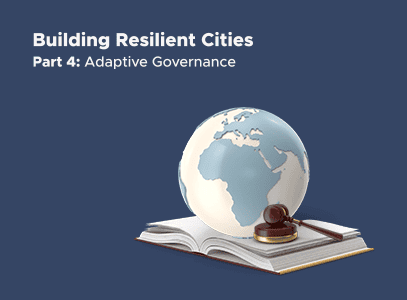The Tiebout model demonstrates that competitive pressure across local governments can lead to the optimal provision of public goods. In other words, competitive governance works, provided several key assumptions. One of those assumptions is that moving costs between jurisdictions are zero. Of course, moving costs are not zero. As such, while the Tiebout model does have some predictive power, it remains known by economists and policy wonks, as it isn’t a central idea in understanding social organization.
Remote work will cause the triumph of Tiebout. As the cost of moving declines, particularly among higher income segments that pay a disproportionate amount of taxes, the more cities and other jurisdictions will adopt policies to compete for those residents.
Moving is expensive. It takes time and money just to physically move to a new location, find a new house or apartment, bring your furniture, or perhaps buy new furniture, and those are only the tangible costs. There are additional costs that are more difficult to quantify, e.g. finding a friend group and building a professional network.
When moving costs are high, jurisdictions can act like monopolies. Taxes can be raised and service quality decreased up to the point of moving cost. San Francisco and the Bay area demonstrated this truism, attracting technology companies despite sky high housing costs, terrible governance, and an antagonistic political class. The network of talent made moving too high for most companies.
As moving costs decline, the market for talent becomes more liquid, and jurisdictions are forced to compete. Remote work is moving us in that direction. By definition, remote work allows you to work from anywhere. This removes one of the main frictions of moving to a new city. Additionally, with more companies going remote, you can build a professional network of remote workers. In effect, remote work unbundles jurisdiction and employment.
As moving costs decline, the market for talent becomes more liquid, and jurisdictions are forced to compete. Remote work is moving us in that direction. By definition, remote work allows you to work from anywhere. This removes one of the main frictions of moving to a new city. Additionally, with more companies going remote, you can build a professional network of remote workers. In effect, remote work unbundles jurisdiction and employment.
Imagine you live in Detroit in 1955 working in the auto industry. Where else would you move? Your skills are related to cars, and there aren’t many other cities with comparable industries. If you’re an auto executive, you also live in Detroit. You read Detroit newspapers, go to church in Detroit, etc. Because of these captive residents and businesses, the Detroit government makes a series of decisions that eventually lead to Detroit’s downfall.
Think about the job market in 2030. If you work remote, you can live anywhere. If one city raises taxes, or limits entertainment, or property prices rise too high, you can decamp and go to a better city. With all remote companies, their executives would face similar decisions.
We are already seeing these effects. The Techsodus is happening, with many people relocating to Miami or Austin. This is in part due to the high housing prices of San Francisco, in part due to the wave of IPOs, and in part due to the increasing unlivability of the Bay Area. It shouldn’t be a surprise that both Miami and Austin are destinations, as neither Florida nor Texas has income taxes. The Miami Mayor, Francis Suarez, has been putting on a master class in how to attract residents via Twitter.
The other implication of the increased mobility of the zoom class is that city governments will be increasingly responsive to higher income earners. Of course, governments have always been more responsive to the wealthy. However, as the zoom class is increasingly mobile, they will use their mobility as leverage to get preferential policies. Higher income people have less leverage when they’re tied to a place.
The increased competition for residents should lead to improved governance. Of course, the road there will be bumpy. Jurisdictions like New York and California whose budgets are dominated by taxes from the wealthy will need to quickly adjust or cut services, the latter is more likely. There is a non-trivial risk of cities like San Francisco entering into negative spirals similar to Detroit, where fleeing residents cause tax revenue to decrease, leading to fewer services, leading to more fleeing residents, and so on.
Winning jurisdictions will be those that act quickly to attract talent. They will tend to have natural advantages, e.g. beaches, as well as responsive politicians that can make the new residents feel welcome and at home. In short, the next decade will see the Triumph of Tiebout.







